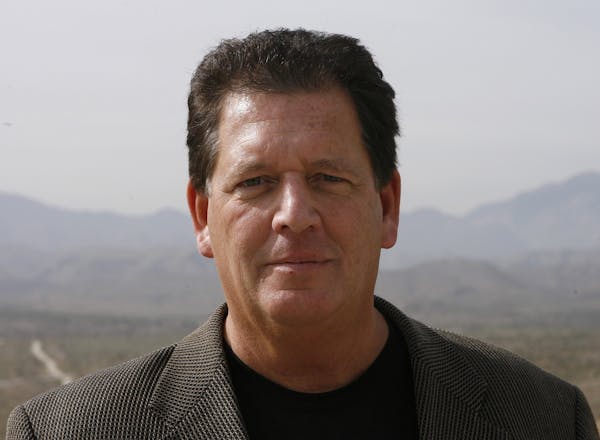Appearing anything but the highflier he portrayed himself to be, a contrite Michael Krzyzaniak pleaded guilty Tuesday in federal court in Minneapolis to stealing over $20 million by wire fraud and tax evasion.
Dressed in orange prison garb, Krzyzaniak, 62, looked haggard as he stood before U.S. District Chief Judge Michael Davis, admitting that he duped gullible investors across the country into believing that his development and entrepreneurial schemes would yield huge returns.
Krzyzaniak has been soliciting investors since 2003 for projects that included a golf resort in Desert Hot Springs, Calif., and a NASCAR-style racetrack in Elko New Market. Among those he drew into his projects was golf pro Phil Mickelson.
Krzyzaniak faces nine to 11 years in prison if Davis approves a plea agreement that would send him back to prison for the second time for committing widespread fraud.
The Twin Cities man, who was also known as Michael J. Crosby for more than 30 years, was convicted in 1993 of fraud when he worked as a rare coins dealer.
Krzyzaniak told Judge Davis that he'd been under the care of a psychologist since about a year ago, undergoing counseling sessions "to evaluate my decisionmaking powers."
Investors described Krzyzaniak, whom they knew as Crosby, as a grand personality who lived large, traveling in chartered jets, driving a $130,000 Mercedes-Benz and relaxing at a California beach house he rented. He neglected to tell investors about his previous mail fraud conviction, or that his business projects' environmental issues might block his grand plans, the government alleged.
On Tuesday, Krzyzaniak admitted he told investors that their money would be funneled into particular projects, and that they could expect a substantial investment return. Then, authorities said, he would describe how each project was proceeding toward a successful conclusion, having secured appropriate approval from appropriate regulatory agencies, according to authorities. It was all false.
In addition, Krzyzaniak told investors he had various financing sources available, if needed, and also had a number of celebrity endorsements that would help attract more investors. Further, Krzyzaniak admitted that from 2004 to 2007, he did not file federal income tax returns or pay any income taxes. The total tax loss to the government was between $400,000 and $1 million, authorities said.
He allegedly spent some of the money he raised to keep projects afloat or to make "lulling" payments to investors. But the indictment says he spent more than $6.1 million of investor funds on himself.
Krzyzaniak allegedly used investor funds to pay $1.8 million in American Express charges, $56,045 for a 1989 Porsche Turbo 911, $11,682 for "a luxury fish house," $44,000 to stable two horses over the years, $38,000 for two snowmobiles and a trailer, and thousands more on appliances and electronics goods, among other things.
In the mid-1980s, Krzyzaniak and some associates sold overpriced silver medallions on the promise that they'd increase in value, and a bogus claim that some of the money would be used to build a 70-acre veterans' park next to Mount Rushmore National Memorial in South Dakota.
Retired Air Force Gen. Chuck Yeager, the first pilot to break the sound barrier, testified that Krzyzaniak tricked him into making a promotional videotape for the park. Elderly coin buyers said they lost their life savings. He was convicted in 2003 and sentenced to three years in federal prison.
A sentencing date will be set after Davis receives and evaluates a presentence investigation.
Paul McEnroe • 612-673-1745 • paul.mcenroe@startribune.com Dan Browning • 612-673-4493 • dbrowning@startribune.com
